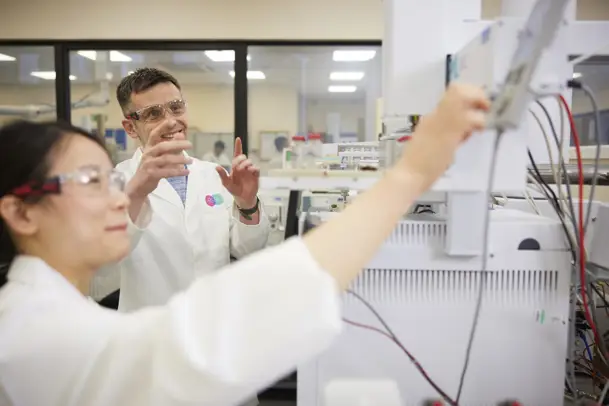To address this challenge, and with funding from UK Research and Innovation (UKRI), Kyomei aimed to enhance the heme-iron content of commonly consumed lettuce (Lactuca sativa) using both molecular farming and gene-editing technologies.
To validate that the gene editing was successful, Kyomei needed to confirm that enhanced heme-iron levels were achieved while also demonstrating that the levels of other essential nutrients were not negatively impacted. This required developing precise testing methodologies to accurately verify the nutritional profile.
Solution
Following a meeting at Future Food Tech, RSSL, an experienced provider of scientific analysis and consultancy, partnered with Kyomei to develop methodologies that could assess the nutritional content of the modified lettuce.
Literature review
To start the project, RSSL conducted an extensive literature review to understand the types of vitamins found in lettuce before genetic modification and the most appropriate methods for their extraction. Different extraction methods were required for the water-soluble vitamins, such as B vitamins, and the fat-soluble vitamins, such as vitamins E, and K. The developed methodology also had to support the extraction of certain vitamin precursors, such as provitamin A carotenoids, as plants do not contain preformed vitamin A.
Sample handling
RSSL worked with Kyomei to optimise the project’s logistics as proper sample handling was crucial for accurate results. Lettuce samples needed to be harvested, cryo-blended, freeze-dried, and stored in a freezer to preserve their vitamin content. Any delays or improper handling could lead to nutrient degradation, potentially affecting the accuracy of testing.





